The History Book Club discussion

This topic is about
Democracy in America
AMERICAN DEMOCRACY - GOVERNMENT
>
ARCHIVE - DECEMBER 2016- JANUARY AND FEBRUARY 2017 - Democracy in America
 Praise and Reviews:
Praise and Reviews:"The editors have written more than a mere introduction; they have written in fact a small book, a remarkably comprehensive and yet succinct study of Tocqueville's political thought. . . . Mansfield and Winthrop have made a remarkably comprehensive and tightly argued case for Tocqueville as the greatest political theorist of democracy, a theorist who is just as relevant today as he was in the nineteenth century."
(Gordon S. Wood New York Review of Books)
"It would be difficult to think of a greater service to the study of Tocqueville than the one performed by Mansfield and Winthrop in their impeccable new edition and translation of Democracy in America. . . . The publisher is justified in claiming that this version will henceforth be seen as the 'authoritative' edition in English."
(Choice)
"The Mansfield-Winthrop work will henceforth be the preferred English version of Democracy in America not only because of the superior translation and critical apparatus, but also because of its long and masterly introductory essay, itself an important contribution to the literature on Tocqueville."
(Roger Kimball The New Criterion)
"If Tocqueville is an indispensable guide to understanding the American experience, Harvey C. Mansfield and Delba Winthrop are indispensable guides to Tocqueville himself. In the introduction to their fresh and limpid translation of Democracy in America—what will surely be the definitive translation for some time to come—they offer a helpful summary of Tocqueville's philosophical and political thought."
(Thomas Pavel Wall Street Journal)
"Democracy in America will continue to be read with profit as long as the United States survives as a republic and, indeed, as long as democracy endures. It deserves faithful translators, careful expositors and insightful commentators. In Mansfield and Winthrop it has found them."
(Robert P. George Times Literary Supplement)
"[A] major new translation. . . . Tocqueville's insights confirm his brilliance and remind us that many features of national character are virtually indestructible."
(Robert J. Samuelson Newsweek)
"This will be the English translation of Tocqueville for a long time, and it has the additional bonus that the introduction is as succinct an introduction to Tocqueville, or at least to the conservative view of him and his achievement, as one can find."
(Adam Gopnik The New Yorker)
 Remember the following:
Remember the following:Everyone is welcome but make sure to use the Goodreads spoiler function.
If you come to the discussion after folks have finished reading it, please feel free to post your comments as we will always come back to the thread to discuss the book.
The rules
You must follow the rules of the History Book Club and also:
First rule of Book of the Month:
Respect other people's opinions, no matter how controversial you think they may be.
Second rule of Book of the Month:
Always, always Chapter/page mark and spoiler alert your posts if you are discussing parts of the book.
To do these spoilers, follows these easy steps:
Step 1. enclose the word spoiler in forward and back arrows; < >
Step 2. write your spoiler comments in
Step 3. enclose the word /spoiler in arrows as above, BUT NOTE the forward slash in front of the word. You must put that forward slash in.
Your spoiler should appear like this:
(view spoiler)
And please mark your spoiler clearly like this:
State a Chapter and page if you can.
EG: Chapter 24, page 154
Or say Up to Chapter *___ (*insert chapter number) if your comment is more broad and not from a single chapter.
Chapter 1, p. 23
(view spoiler)
If you are raising a question/issue for the group about the book, you don't need to put that in a spoiler, but if you are citing something specific, it might be good to use a spoiler.
By using spoilers, you don't ruin the experience of someone who is reading slower or started later.
Thanks.
 Version information utilized in this discussion:
Version information utilized in this discussion:Democracy in America
by Alexis de Tocqueville, translated by Harvey C. Mansfield and Delba Winthrop
University of Chicago Press, 2000
Cloth: 978-0-226-80532-0 | Paper: 978-0-226-80536-8 | Electronic: 978-0-226-92456-4
 TABLE OF CONTENTS
TABLE OF CONTENTSEditors' Introduction xvii
Suggested Readings lxxxvii
A Note on the Translation xci
Volume One
Introduction 3
Part One
1. External Configuration of North America 19
2. On the Point of Departure and Its Importance for the Future of the Anglo-Americans 27
Reasons for Some Singularities That the Laws and Customs of the Anglo-Americans Present 44
3. Social State of the Anglo-Americans 45
The Salient Point of the Social State of the Anglo-Americans Is Its Being Essentially Democratic 46
Political Consequences of the Social State of the Anglo-Americans 52
4. On the Principle of the Sovereignty of the People in America 53
5. Necessity of Studying What Takes Place in the Particular States before Speaking of the Government of the Union 56
On the Township System in America 57
Size of Township 58
Powers of the Township in New England 58
On Township Existence 61
On the Spirit of the Township in New England 63
On the Country in New England 65
On Administration in New England 66
General Ideas about Administration in the United States 75
On the State 79
Legislative Power of the State 80
On the Executive Power of the State 81
On the Political Effects of Administrative Decentralization in the United States 82
6. On Judicial Power in the United States and Its Action on Political Society 93
Other Powers Granted to American Judges 98
7. On Political Judgment in the United States 100
8. On the Federal Constitution 105
History of the Federal Constitution 105
Summary Picture of the Federal Constitution 107
Prerogatives of the Federal Government 108
Federal Powers 110
Legislative Powers 110
Another Difference between the Senate and the House of Representatives 113
On the Executive Power 113
How the Position of the President of the United States Differs from That of a Constitutional King in France 115
Accidental Causes That Can Increase the Influence of the Executive Power 118
Why the President of the United States Does Not Need to Have a Majority in the Houses in Order to Direct Affairs 119
On the Election of the President 120
Mode of Election 124
Crisis of Election 126
On the Reelection of the President 128
On the Federal Courts 130
Manner of Settling the Competence of the Federal Courts 133
Different Cases of Jurisdiction 135
Manner of Proceeding of Federal Courts 139
Elevated Rank Held by the Supreme Court among the Great Powers of the State 141
How the Federal Constitution Is Superior to the Constitutions of the States 143
What Distinguishes the Federal Constitution of the United States of America from All Other Federal Constitutions 146
On the Advantages of the Federal System Generally, and Its Special Utility for America 149
What Keeps the Federal System from Being within Reach of All Peoples, and What Has Permited the Anglo-Americans to Adopt It 154
Part Two
1. How One Can Say Strictly That in the United States the People Govern 165
2. On Parties in the United States 166
On the Remains of the Aristocratic Party in the United States 170
3. On Freedom of the Press in the United States 172
4. On Political Association in the United States 180
5. On the Government of Democracy in America 187
On Universal Suffrage 187
On the Choices of the People and the Instincts of American Democracy in Its Choices 187
On the Causes That Can in Part Correct These Instincts of Democracy 190
Influence That American Democracy Exerts on Electoral Laws 192
On Public Officials under the Empire of American Democracy 194
On the Arbitrariness of Magistrates under the Empire of American Democracy 196
Administrative Instability in the United States 198
On Public Costs under the Empire of American Democracy 199
On the Instincts of American Democracy in Fixing the Salaries of Officials 203
Difficulty of Discerning the Causes That Incline the American Government to Economy 205
Can the Public Expenditures of the United States Be Compared to Those of France? 206
On the Corruption and Vices of Those Who Govern in Democracy; On the Effects on Public Morality that Result 210
Of What Efforts Democracy Is Capable 212
On the Power That American Democracy Generally Exercises over Itself 215
The Manner in Which American Democracy Conducts External Affairs of State 217
6. What Are the Real Advantages That American Society Derives from the Government of Democracy 220
On the General Tendency of the Laws under the Empire of American Democracy, and on the Instinct of Those Who Apply Them 221
On Public Spirit in the United States 225
On the Idea of Rights in the United States 227
On Respect for the Law in the United States 229
Activity Reigning in All Parts of the Body Politic of the United States; Influence That It Exerts on Society 231
7. On the Omnipotence of the Majority in the United States and Its Effects 235
How the Omnipotence of the Majority in America Increases the Legislative and Administrative Instability That Is Natural to Democracies 238
Tyranny of the Majority 239
Effects of the Omnipotence of the Majority on the Arbitrariness of American Officials 242
On the Power That the Majority in America Exercises over Thought 243
Effects of the Tyranny of the Majority on the National Character of the Americans; On the Spirit of a Court in the United States
That the Greatest Danger of the American Republics Comes from the Omnipotence of the Majority 246
That the Greatest Danger of the American Public Comes from the Omnipotence of the Majority 248
8. On What Tempers the Tyranny of the Majority in the United States 250
Absence of Administrative Centralization 250
On the Spirit of the Lawyer in the United States and How It Serves as a Counterweight to Democracy 251
On the Jury in the United States Considered as a Political Institution 258
9. On the Principal Causes Tending to Maintain a Democratic Republic in the United States 264
On the Accidental or Providential Causes Contributing to the Maintenance of a Democratic Republic in the United States 265
On the Influence of Laws on the Maintenance of a Democratic Republic in United States 274
On the Influence of Mores on the Maintenance of a Democratic Republic in United States 274
On Religion Considered as a Political Institution; How It Serves Powerfully the Maintenance of a Democratic Republic among the Americans 275
Indirect Influence That Religious Beliefs Exert on Political Society in the United States 278
On the Principal Causes That Make Religion Powerful in America 282
How the Enlightenment, the Habits, and the Practical Experience of the Americans Contribute to the Success of Democratic Institutions 288
That the laws Serve to Maintain a Democratic Republic in the United States More than Physical Causes, and Mores More than Laws 292
Would Laws and Mores Suffice to Maintain Democratic Institutions Elsewhere than in America? 296
Importance of What Precedes in Relation to Europe 298
10. Some Considerations on the Present State and the Probable Future of the Three Races That Inhabit the Territory of the United States 302
Present State and Probable Future of the Three Races That Inhabit the Territory Possessed by the Union 307
Position That the Black Race Occupies in the United States; Dangers Incuurred by Whites from Its Presence 326
What are the Chances That the American Unions Will Last? What Dangers Threaten It? 348
On Republican Institutions in the United States; What Are Their Chances of Longevity? 379
Some Considerations on the Causes of the Commercial Greatness of the United States 384
Conclusion 391
 TABLE OF CONTENTS
TABLE OF CONTENTSVolume Two
Notice 399
Part One: Influence of Democracy on Intellectual Movement in the United States
1. On the Philosophic Method of the Americans 403
2. On the Principal Source of Beliefs among Democratic Peoples 407
3. Why the Americans Show More Aptitude and Taste for General Ideas than Their English Fathers 411
4. Why the Americans Have Never Been as Passionate as the French for General Ideas in Political Matters 415
5. How, in the United States, Religion Knows How to Make Use of Democratic Instincts 417
6. On the Progress of Catholicism in the United States 424
7. What Makes the Mind of Democratic Peoples Lean toward Pantheism 425
8. How Equality Suggests to the Americans the Idea of the Indefinite Perfectibility of Man 426
9. How the Example of the Americans Does Not Prove That a Democratic People Can Have No Aptitude and Taste for the Sciences, Literature, and the Arts 428
10. Why the Americans Apply Themselves to the Practice of the Sciences Rather than to the Theory 433
11. In What Spirit the Americans Cultivate the Arts 439
12. Why the Americans at the Same Time Raise Such Little and Such Great Monuments 443
13. The Literary Face of Democratic Centuries 445
14. On the Literary Industry 450
15. Why the Study of Greek and Latin Literature Is Particularly Useful in Democratic Societies 450
16. How American Democracy has Modified the English Language 452
17. On Some Sources of Poetry in Democratic Nations 458
18. Why American Writers and Orators Are Often Bombastic 463
19. Some Observations on the Theater of Democratic Peoples 465
20. On Some Tendencies Particular to Historians in Democratic Centuries 469
21. On Parliamentary Eloquence in the United States 472
Part Two: Influence of Democracy on the Sentiments of the Americans
1. Why Democratic Peoples Show a More Ardent and More Lasting Love for Equality than for Freedom 479
2. On Individualism in Democratic Countries 482
3. How Individualism is Greater at the End of a Democratic Resolution than in Any Other Period 484
4. How the Americans Combat Individualism with Free Institutions 485
5. On the Use That the Americans Make of Association in Civil Life 489
6. On the Relation between Associations and Newspapers 493
7. Relations between Civil Associations and Political Associations 496
8. How the Americans Combat Individualism by the Doctrine of Self-Interest Well Understood 500
9. How the Americans Apply the Doctrine of Self-Interest Well Understood in the Matter of Religion 504
10. On the Taste for Material Well-Being in America 506
11. On the Particular Effects That the Love of Material Enjoyments Produces in Democratic Centuries 508
12. Why Certain Americans Display Such an Exalted Spiritualism 510
13. Why the Americans Show Themselves So Restive in the Midst of Their Well-Being 511
14. How the Taste for Material Enjoyments among Americans is United with Love of Freedom and with Care for Public Affairs 514
15. How Religious Beliefs at Times Turn the Souls of the Americans toward Immaterial Enjoyments 517
16. How the Excessive Love of Well-Being Can Be Harmful to Well-Being 521
17. How in Times of Equality and Doubt It Is Important to Move Back the Object of Human Actions 522
18. Why among the Americans All Honest Professions Are Reputed Honorable 525
19. What Makes almost All Americans Incline toward Industrial Professions 526
20. How Aristocracy Could Issue from Industry 530
Part Three: Influence of Democracy on Mores Properly So-Called
1. How Mores Become Milder as Conditions are Equalized 535
2. How Democracy Renders the Habitual Relations of the Americans Simpler and Easier 539
3. Why the Americans Have So Little Oversensitivity in Their Country and Show Themselves to Be So Oversensitive in Ours 541
4. Consequences of the Preceding Three Chapters 544
5.How Democracy Modifies the Relations of Servant and Master 546
6. How Democratic Institutions and Mores Tend to Raise the Price and Shorten the Duration of Leases 553
7. Influence of Democracy on Wages 555
8. Influence of Democracy on the Family 558
9. Education of Girls in the United States 563
10. How the Girl is Found beneath the Features of the Wife 565
11. How Equality of Conditions Contributes to Maintaining Good Mores in America 567
12. How the Americans Understand the Equality of Man and Woman 573
13. How Equality Naturally Divides the Americans into a Multitude of Particular Little Societies 577
14. Some Reflections on American Manners 578
15. On the Gravity of the Americans and Why It Does Not Prevent Their Often Doing Ill-Considered Things 582
16. Why the National Vanity of the Americans Is More Restive and More Quarrelsome than That of the English 585
17. How the Aspect of Society in the United States Is at Once Agitated and Monotonous 587
18. On Honor in the United States and in Democratic Societies 589
19. Why One Finds So Many Ambitious Men in the United States and So Few Great Ambitions 599
20. On the Industry in Place-Hunting in Certain Democratic Nations 604
21. Why Great Revolutions Will Become Rare 606
22. Why Democratic Peoples Naturally Desire Peace and Democratic Armies Naturally [Desire] War617
23. Which Is the Most Warlike and the Most Revolutionary Class in Democratic Armies 623
24. What Mates Democratic Armies Weaker than Other Armies When Entering into a Campaign and More Formidable When War Is Prolonged 626
25. On Discipline in Democratic Armies 629
26. Some Considerations on War in Democratic Societies 631
Part Four: On the Influence that Democratic Ideas and Sentiments Exert on Political Society
1. Equality Naturally Gives Men the Taste for Free Institutions 639
2. That the Ideas of Democratic Peoples in the Matter of Government Are Naturally Favorable to the Concentration of Powers 640
3. That the Sentiments of Democratic Peoples Are in Accord with Their Ideas to Bring Them to Concentrate Power 643
4. On Some Particular and Accidental Causes That Serve to Bring a Democratic People to Centralize Power or Turn It Away from That 646
5. That among European Nations of Our Day Sovereign Power Increases Although Sovereigns are less Stable 651
6. What Kind of Despotism Democratic Nations Have to Fear 661
7. Continuation of the Preceding Chapters 666
8. General View of the Subject 673
Notes 677
Sources Cited by Tocqueville 705
Index 711
 FOR THOSE WHO WOULD LIKE A SUGGESTED WEEKLY SYLLABUS
FOR THOSE WHO WOULD LIKE A SUGGESTED WEEKLY SYLLABUSDECEMBER - VOLUME ONE
DECEMBER 1ST THROUGH DECEMBER 4TH
Introduction 3
1. External Configuration of North America 19
2. On the Point of Departure and Its Importance for the Future of the Anglo-Americans 27
Reasons for Some Singularities That the Laws and Customs of the Anglo-Americans Present 44
DECEMBER 5TH THROUGH DECEMBER 11TH
3. Social State of the Anglo-Americans 45
The Salient Point of the Social State of the Anglo-Americans Is Its Being Essentially Democratic 46
Political Consequences of the Social State of the Anglo-Americans 52
4. On the Principle of the Sovereignty of the People in America 53
5. Necessity of Studying What Takes Place in the Particular States before Speaking of the Government of the Union 56
On the Township System in America 57
Size of Township 58
Powers of the Township in New England 58
On Township Existence 61
On the Spirit of the Township in New England 63
On the Country in New England 65
On Administration in New England 66
General Ideas about Administration in the United States 75
On the State 79
Legislative Power of the State 80
On the Executive Power of the State 81
On the Political Effects of Administrative Decentralization in the United States 82
6. On Judicial Power in the United States and Its Action on Political Society 93
Other Powers Granted to American Judges 98
7. On Political Judgment in the United States 100
8. On the Federal Constitution 105
History of the Federal Constitution 105
Summary Picture of the Federal Constitution 107
Prerogatives of the Federal Government 108
Federal Powers 110
Legislative Powers 110
Another Difference between the Senate and the House of Representatives 113
On the Executive Power 113
How the Position of the President of the United States Differs from That of a Constitutional King in France 115
Accidental Causes That Can Increase the Influence of the Executive Power 118
Why the President of the United States Does Not Need to Have a Majority in the Houses in Order to Direct Affairs 119
On the Election of the President 120
Mode of Election 124
Crisis of Election 126
On the Reelection of the President 128
On the Federal Courts 130
DECEMBER 12TH THROUGH DECEMBER 19TH
Manner of Settling the Competence of the Federal Courts 133
Different Cases of Jurisdiction 135
Manner of Proceeding of Federal Courts 139
Elevated Rank Held by the Supreme Court among the Great Powers of the State 141
How the Federal Constitution Is Superior to the Constitutions of the States 143
What Distinguishes the Federal Constitution of the United States of America from All Other Federal Constitutions 146
On the Advantages of the Federal System Generally, and Its Special Utility for America 149
What Keeps the Federal System from Being within Reach of All Peoples, and What Has Permited the Anglo-Americans to Adopt It 154
1. How One Can Say Strictly That in the United States the People Govern 165
2. On Parties in the United States 166
On the Remains of the Aristocratic Party in the United States 170
3. On Freedom of the Press in the United States 172
4. On Political Association in the United States 180
5. On the Government of Democracy in America 187
On Universal Suffrage 187
On the Choices of the People and the Instincts of American Democracy in Its Choices 187
On the Causes That Can in Part Correct These Instincts of Democracy 190
Influence That American Democracy Exerts on Electoral Laws 192
On Public Officials under the Empire of American Democracy 194
On the Arbitrariness of Magistrates under the Empire of American Democracy 196
Administrative Instability in the United States 198
On Public Costs under the Empire of American Democracy 199
On the Instincts of American Democracy in Fixing the Salaries of Officials 203
Difficulty of Discerning the Causes That Incline the American Government to Economy 205
Can the Public Expenditures of the United States Be Compared to Those of France? 206
On the Corruption and Vices of Those Who Govern in Democracy; On the Effects on Public Morality that Result 210
Of What Efforts Democracy Is Capable 212
On the Power That American Democracy Generally Exercises over Itself 215
The Manner in Which American Democracy Conducts External Affairs of State 217
6. What Are the Real Advantages That American Society Derives from the Government of Democracy 220
On the General Tendency of the Laws under the Empire of American Democracy, and on the Instinct of Those Who Apply Them 221
DECEMBER 20TH THROUGH DECEMBER 25TH
On Public Spirit in the United States 225
On the Idea of Rights in the United States 227
On Respect for the Law in the United States 229
Activity Reigning in All Parts of the Body Politic of the United States; Influence That It Exerts on Society 231
7. On the Omnipotence of the Majority in the United States and Its Effects 235
How the Omnipotence of the Majority in America Increases the Legislative and Administrative Instability That Is Natural to Democracies 238
Tyranny of the Majority 239
Effects of the Omnipotence of the Majority on the Arbitrariness of American Officials 242
On the Power That the Majority in America Exercises over Thought 243
Effects of the Tyranny of the Majority on the National Character of the Americans; On the Spirit of a Court in the United States
That the Greatest Danger of the American Republics Comes from the Omnipotence of the Majority 246
That the Greatest Danger of the American Public Comes from the Omnipotence of the Majority 248
8. On What Tempers the Tyranny of the Majority in the United States 250
Absence of Administrative Centralization 250
On the Spirit of the Lawyer in the United States and How It Serves as a Counterweight to Democracy 251
On the Jury in the United States Considered as a Political Institution 258
9. On the Principal Causes Tending to Maintain a Democratic Republic in the United States 264
On the Accidental or Providential Causes Contributing to the Maintenance of a Democratic Republic in the United States 265
On the Influence of Laws on the Maintenance of a Democratic Republic in United States 274
On the Influence of Mores on the Maintenance of a Democratic Republic in United States 274
On Religion Considered as a Political Institution; How It Serves Powerfully the Maintenance of a Democratic Republic among the Americans 275
Indirect Influence That Religious Beliefs Exert on Political Society in the United States 278
On the Principal Causes That Make Religion Powerful in America 282
How the Enlightenment, the Habits, and the Practical Experience of the Americans Contribute to the Success of Democratic Institutions 288
That the laws Serve to Maintain a Democratic Republic in the United States More than Physical Causes, and Mores More than Laws 292
Would Laws and Mores Suffice to Maintain Democratic Institutions Elsewhere than in America? 296
Importance of What Precedes in Relation to Europe 298
10. Some Considerations on the Present State and the Probable Future of the Three Races That Inhabit the Territory of the United States 302
DECEMBER 26TH THROUGH DECEMBER 31ST
Present State and Probable Future of the Three Races That Inhabit the Territory Possessed by the Union 307
Position That the Black Race Occupies in the United States; Dangers Incurred by Whites from Its Presence 326
What are the Chances That the American Unions Will Last? What Dangers Threaten It? 348
On Republican Institutions in the United States; What Are Their Chances of Longevity? 379
Some Considerations on the Causes of the Commercial Greatness of the United States 384
Conclusion 391
 FOR THOSE WHO WOULD LIKE A SUGGESTED WEEKLY SYLLABUS
FOR THOSE WHO WOULD LIKE A SUGGESTED WEEKLY SYLLABUSJANUARY - VOLUME TWO
JANUARY 1ST THROUGH JANUARY 8TH
Notice 399
1. On the Philosophic Method of the Americans 403
2. On the Principal Source of Beliefs among Democratic Peoples 407
3. Why the Americans Show More Aptitude and Taste for General Ideas than Their English Fathers 411
4. Why the Americans Have Never Been as Passionate as the French for General Ideas in Political Matters 415
5. How, in the United States, Religion Knows How to Make Use of Democratic Instincts 417
6. On the Progress of Catholicism in the United States 424
7. What Makes the Mind of Democratic Peoples Lean toward Pantheism 425
8. How Equality Suggests to the Americans the Idea of the Indefinite Perfectibility of Man 426
9. How the Example of the Americans Does Not Prove That a Democratic People Can Have No Aptitude and Taste for the Sciences, Literature, and the Arts 428
10. Why the Americans Apply Themselves to the Practice of the Sciences Rather than to the Theory 433
11. In What Spirit the Americans Cultivate the Arts 439
12. Why the Americans at the Same Time Raise Such Little and Such Great Monuments 443
13. The Literary Face of Democratic Centuries 445
14. On the Literary Industry 450
15. Why the Study of Greek and Latin Literature Is Particularly Useful in Democratic Societies 450
16. How American Democracy has Modified the English Language 452
17. On Some Sources of Poetry in Democratic Nations 458
18. Why American Writers and Orators Are Often Bombastic 463
19. Some Observations on the Theater of Democratic Peoples 465
20. On Some Tendencies Particular to Historians in Democratic Centuries 469
21. On Parliamentary Eloquence in the United States 472
JANUARY 9TH THROUGH JANUARY 15TH
1. Why Democratic Peoples Show a More Ardent and More Lasting Love for Equality than for Freedom 479
2. On Individualism in Democratic Countries 482
3. How Individualism is Greater at the End of a Democratic Resolution than in Any Other Period 484
4. How the Americans Combat Individualism with Free Institutions 485
5. On the Use That the Americans Make of Association in Civil Life 489
6. On the Relation between Associations and Newspapers 493
7. Relations between Civil Associations and Political Associations 496
8. How the Americans Combat Individualism by the Doctrine of Self-Interest Well Understood 500
9. How the Americans Apply the Doctrine of Self-Interest Well Understood in the Matter of Religion 504
10. On the Taste for Material Well-Being in America 506
11. On the Particular Effects That the Love of Material Enjoyments Produces in Democratic Centuries 508
12. Why Certain Americans Display Such an Exalted Spiritualism 510
13. Why the Americans Show Themselves So Restive in the Midst of Their Well-Being 511
14. How the Taste for Material Enjoyments among Americans is United with Love of Freedom and with Care for Public Affairs 514
15. How Religious Beliefs at Times Turn the Souls of the Americans toward Immaterial Enjoyments 517
16. How the Excessive Love of Well-Being Can Be Harmful to Well-Being 521
17. How in Times of Equality and Doubt It Is Important to Move Back the Object of Human Actions 522
18. Why among the Americans All Honest Professions Are Reputed Honorable 525
19. What Makes almost All Americans Incline toward Industrial Professions 526
20. How Aristocracy Could Issue from Industry 530
1. How Mores Become Milder as Conditions are Equalized 535
2. How Democracy Renders the Habitual Relations of the Americans Simpler and Easier 539
JANUARY 16TH THROUGH JANUARY 22ND
3. Why the Americans Have So Little Oversensitivity in Their Country and Show Themselves to Be So Oversensitive in Ours 541
4. Consequences of the Preceding Three Chapters 544
5.How Democracy Modifies the Relations of Servant and Master 546
6. How Democratic Institutions and Mores Tend to Raise the Price and Shorten the Duration of Leases 553
7. Influence of Democracy on Wages 555
8. Influence of Democracy on the Family 558
9. Education of Girls in the United States 563
10. How the Girl is Found beneath the Features of the Wife 565
11. How Equality of Conditions Contributes to Maintaining Good Mores in America 567
12. How the Americans Understand the Equality of Man and Woman 573
13. How Equality Naturally Divides the Americans into a Multitude of Particular Little Societies 577
14. Some Reflections on American Manners 578
15. On the Gravity of the Americans and Why It Does Not Prevent Their Often Doing Ill-Considered Things 582
16. Why the National Vanity of the Americans Is More Restive and More Quarrelsome than That of the English 585
17. How the Aspect of Society in the United States Is at Once Agitated and Monotonous 587
18. On Honor in the United States and in Democratic Societies 589
19. Why One Finds So Many Ambitious Men in the United States and So Few Great Ambitions 599
JANUARY 23RD THROUGH JANUARY 29TH
20. On the Industry in Place-Hunting in Certain Democratic Nations 604
21. Why Great Revolutions Will Become Rare 606
22. Why Democratic Peoples Naturally Desire Peace and Democratic Armies Naturally [Desire] War617
23. Which Is the Most Warlike and the Most Revolutionary Class in Democratic Armies 623
24. What Mates Democratic Armies Weaker than Other Armies When Entering into a Campaign and More Formidable When War Is Prolonged 626
25. On Discipline in Democratic Armies 629
26. Some Considerations on War in Democratic Societies 631
1. Equality Naturally Gives Men the Taste for Free Institutions 639
2. That the Ideas of Democratic Peoples in the Matter of Government Are Naturally Favorable to the Concentration of Powers 640
3. That the Sentiments of Democratic Peoples Are in Accord with Their Ideas to Bring Them to Concentrate Power 643
4. On Some Particular and Accidental Causes That Serve to Bring a Democratic People to Centralize Power or Turn It Away from That 646
5. That among European Nations of Our Day Sovereign Power Increases Although Sovereigns are less Stable 651
JANUARY 30TH THROUGH JANUARY 31ST
6. What Kind of Despotism Democratic Nations Have to Fear 661
7. Continuation of the Preceding Chapters 666
8. General View of the Subject 673
 Those of you who are going to read Democracy in America use the spoiler html because this is a single thread discussion.
Those of you who are going to read Democracy in America use the spoiler html because this is a single thread discussion. 1. Read message 3 and that message shows you the rules for the buddy read discussion and how to do the spoiler html.
2. Message 4 actually shows you the spoiler html code. Use it on this thread.
3. Where is the Table of Contents and the reading syllabus? - Messages 6 - 9.
 All, we do not have to do citations regarding the book or the author being discussed during the book discussion on these discussion threads - nor do we have to cite any personage in the book being discussed while on the discussion threads related to this book.
All, we do not have to do citations regarding the book or the author being discussed during the book discussion on these discussion threads - nor do we have to cite any personage in the book being discussed while on the discussion threads related to this book.However if we discuss folks outside the scope of the book or another book is cited which is not the book and author discussed then we do have to do that citation according to our citation rules. That makes it easier to not disrupt the discussion.
 Welcome everyone to our December Book of the Month selection. We are going to be digging into Democracy in America. This is a heftier book than most of our previous selections so we have an aggressive reading schedule and will be extending this book through January.
Welcome everyone to our December Book of the Month selection. We are going to be digging into Democracy in America. This is a heftier book than most of our previous selections so we have an aggressive reading schedule and will be extending this book through January.We will be covering the Introduction and Volume One, Part One, Chapters 1-2 this week. Let's kick things off with a few introductory questions:
Week One Discussion Questions – Kick Off and Introductions
1. Introduce yourself and tells us what interest you have in this book.
2. What do you know about Alexis de Tocqueville?
3. What does Democracy mean to you?
 Hi, Gavin Bledsoe here, and I have been meaning to read 'DIA' for years, so this reading groups is the perfect opportunity to make it happen. I know I read about de Tocqueville and 'DIA' during high school and college, but I was never assigned any readings. I would come across the book off and on, but never felt the urge to dip in. In 1997 C-SPAN ran a Tocqueville Bus Tour and I watched a number of the programs, loved them, but again did not read.
Hi, Gavin Bledsoe here, and I have been meaning to read 'DIA' for years, so this reading groups is the perfect opportunity to make it happen. I know I read about de Tocqueville and 'DIA' during high school and college, but I was never assigned any readings. I would come across the book off and on, but never felt the urge to dip in. In 1997 C-SPAN ran a Tocqueville Bus Tour and I watched a number of the programs, loved them, but again did not read.So, after some recent observations of people stating that they were dropping out and reading de Tocqueville I thought I finally have to do this. So here I am.
Democracy to my mind is the opportunity for a regular guy like me to participate as much as I desire in my government, whether simply voting, advocating, or even running for office. Love it and I look forward to having a better understanding regarding this book.
Now for one small observation. When I received the notification it appeared that the group was reading one particular edition that I looked for locally and ended up buying online. When the feed actually opened up I discovered that another edition was being used, or so it seems. That, I did find in hardback today, at my best used bookstore for $9.83 plus tax. I just suggest that things might be clearer before taking the plunge, and perhaps that is simply my fault for being a lurker for several years.
Regardless, I am extremely excited about this book and the reading group. Cheers!
 Alexis de Tocqueville
Alexis de Tocquevillevs
 Alexis de Tocqueville
Alexis de Tocqueville
 Gavin wrote: "Hi, Gavin Bledsoe here, and I have been meaning to read 'DIA' for years, so this reading groups is the perfect opportunity to make it happen. I know I read about de Tocqueville and 'DIA' during hig..."
Gavin wrote: "Hi, Gavin Bledsoe here, and I have been meaning to read 'DIA' for years, so this reading groups is the perfect opportunity to make it happen. I know I read about de Tocqueville and 'DIA' during hig..."Hi Gavin - Glad you can join us. You can read whatever edition you like. I noted the edition that was used in setting up the weekly discussion. I have made sure to set the syllabus by chapters, so even though I set page numbers, you can distinguish by chapter headings.
Note: Please be familiar with the spoiler tags as mentioned in message 4 above. This discussion will take place in spoiler posts since it is a single threaded discussion.
 I have wanted to read this book for a long time. Great idea to spread it out over two months. My copy is on the way and I will be joining you as I can.
I have wanted to read this book for a long time. Great idea to spread it out over two months. My copy is on the way and I will be joining you as I can.
 Thank you to everyone who worked on the chapter summaries, the syllabi and the introduction. Fine work by interesting scholars. I'm looking forward to reading de Tocqueville's books, accompanied by everyone's interesting insights and takes on his musings.
Thank you to everyone who worked on the chapter summaries, the syllabi and the introduction. Fine work by interesting scholars. I'm looking forward to reading de Tocqueville's books, accompanied by everyone's interesting insights and takes on his musings.
 Hello all ~ We are kicking off Democracy in America this week. It is a short week so we are doing the Introduction and Chapters 1 and 2. Please be sure to post all comments on the book in spoiler tags. See message 4 above.
Hello all ~ We are kicking off Democracy in America this week. It is a short week so we are doing the Introduction and Chapters 1 and 2. Please be sure to post all comments on the book in spoiler tags. See message 4 above.I'll be posting some questions from time to time as conversation starters but you do not have to answer these questions. You can post your own comments, questions, thoughts, favorite quotes. This is your discussion.
Enjoy.
 Week One Discussion Questions - On the Point of Departure and Its Importance for the Future of the Anglo-Americans – 27 - 43
Week One Discussion Questions - On the Point of Departure and Its Importance for the Future of the Anglo-Americans – 27 - 43(view spoiler)
 Week One Discussion Questions - Reasons for Some Singularities That the Laws and Customs of the Anglo-Americans Present – 44
Week One Discussion Questions - Reasons for Some Singularities That the Laws and Customs of the Anglo-Americans Present – 44(view spoiler)
 Hi everyone. I will be reading and discussing it with you all.
Hi everyone. I will be reading and discussing it with you all.This is my first book with the group, looking forward to the
discussion.
I am using another edition ... an e-book translated by Henry Reeve.
 Welcome MaryAnn! I think you will be fine, no matter what edition you are reading. I have the syllabus broken up by chapters, so pages really won't be so important.
Welcome MaryAnn! I think you will be fine, no matter what edition you are reading. I have the syllabus broken up by chapters, so pages really won't be so important.
 I'm picking this up from the library today. I'm looking forward to starting it! This is my first BOM with this group, and I'll be a bit slow to read it, but I'll enjoy joining in on the discussions once I dive in. :)
I'm picking this up from the library today. I'm looking forward to starting it! This is my first BOM with this group, and I'll be a bit slow to read it, but I'll enjoy joining in on the discussions once I dive in. :)
 Colleen wrote: "I'm picking this up from the library today. I'm looking forward to starting it! This is my first BOM with this group, and I'll be a bit slow to read it, but I'll enjoy joining in on the discussions..."
Colleen wrote: "I'm picking this up from the library today. I'm looking forward to starting it! This is my first BOM with this group, and I'll be a bit slow to read it, but I'll enjoy joining in on the discussions..."Welcome to the discussion, Colleen.
 Welcome, Nancy. I am not familiar with Furet, so I will look him up.
Welcome, Nancy. I am not familiar with Furet, so I will look him up.Great introduction. I look forward to your unique perspective.
Note: Please be familiar with the spoiler tags as mentioned in message 4 above. This discussion will take place in spoiler posts since it is a single threaded discussion.
 Nancy wrote: "Teri wrote: "Welcome, Nancy. I am not familiar with Furet, so I will look him up.
Nancy wrote: "Teri wrote: "Welcome, Nancy. I am not familiar with Furet, so I will look him up.Great introduction. I look forward to your unique perspective.
Note: Please be familiar with the spoiler tags as ..."
Hi Nancy, put a title in bold (it helps it to stand out) and put the chapter you're about to discuss. That usually works well for us. I also will sometimes put a brief subject too.
 Nancy wrote: "I'm trying to catch up with the group. My comment is an answer to the discussion question nr 2; message 23. I would like to hear your comments about it.
Nancy wrote: "I'm trying to catch up with the group. My comment is an answer to the discussion question nr 2; message 23. I would like to hear your comments about it.Chapter 2, pg. 30."
Reply to Nancy - Chapter 2 - Feudal Democracy
(view spoiler)
message 44:
by
Bentley, Group Founder, Leader, Chief
(last edited Dec 19, 2016 06:12AM)
(new)
-
rated it 5 stars
Nancy you are so right and what you posted is so true - I do not think that your response needs to be in spoilers and is so important that I am reposting it without spoilers because this was the whole point of selecting this book.
Little did I know at the time how relevant this book would be to today's news cycle. And what is most interesting is that this book was not written by an American.
Folks Nancy wrote this about the book we are discussing:
This book should be mandatory in all high schools! I remember my 'Government' class years ago....where I learned nothing! This book has been the greatest teacher when it comes to understanding the USA's greatest treasure: US Constitution!
Little did I know at the time how relevant this book would be to today's news cycle. And what is most interesting is that this book was not written by an American.
Folks Nancy wrote this about the book we are discussing:
This book should be mandatory in all high schools! I remember my 'Government' class years ago....where I learned nothing! This book has been the greatest teacher when it comes to understanding the USA's greatest treasure: US Constitution!
 Bentley, it's so great to have you back. I agree with Nancy that this book should be mandatory reading. It is hard to believe this book was not written by an American. He understands our system of government so well.
Bentley, it's so great to have you back. I agree with Nancy that this book should be mandatory reading. It is hard to believe this book was not written by an American. He understands our system of government so well.
message 47:
by
Bentley, Group Founder, Leader, Chief
(last edited Dec 19, 2016 04:05PM)
(new)
-
rated it 5 stars
Helga thank you - this has been one of the roughest years of my life.
I am glad to be back.
This book is an amazing book and you are right - it is hard to believe that it is written by someone who was not an American. He really studied our system of government.
I am glad to be back.
This book is an amazing book and you are right - it is hard to believe that it is written by someone who was not an American. He really studied our system of government.
message 48:
by
Bentley, Group Founder, Leader, Chief
(last edited Dec 19, 2016 05:25PM)
(new)
-
rated it 5 stars
I am going to repeat important posts here for the folks just starting out and get everybody in sync - other folks who started out at the first of the month - that is fine - we will keep going.
Folks - please when you are starting out - read thoroughly messages 1 through 11 first - this will give you the background information on how a single thread book discussion takes place and how to use spoiler html. We give you a suggested reading syllabus that takes you through the end of January but I have extended the reading schedule through the end of February so that more folks can join in on the discussion of this classic. The threads are always open and we will be here for you - You do not have to rush - this is a great opportunity and discussion.
Folks - please when you are starting out - read thoroughly messages 1 through 11 first - this will give you the background information on how a single thread book discussion takes place and how to use spoiler html. We give you a suggested reading syllabus that takes you through the end of January but I have extended the reading schedule through the end of February so that more folks can join in on the discussion of this classic. The threads are always open and we will be here for you - You do not have to rush - this is a great opportunity and discussion.
message 49:
by
Bentley, Group Founder, Leader, Chief
(last edited Dec 19, 2016 04:03PM)
(new)
-
rated it 5 stars
This is some important information about spoilers:
Remember the following:
Everyone is welcome but make sure to use the goodreads spoiler function.
If you come to the discussion after folks have finished reading it, please feel free to post your comments as we will always come back to the thread to discuss the book.
The rules
You must follow the rules of the History Book Club and also:
First rule of Book of the Month discussions:
Respect other people's opinions, no matter how controversial you think they may be.
Second rule of Book of the Month discussions:
Always, always Chapter/page mark and spoiler alert your posts if you are discussing parts of the book.
To do these spoilers, follows these easy steps:
Step 1. enclose the word spoiler in forward and back arrows; < >
Step 2. write your spoiler comments in
Step 3. enclose the word /spoiler in arrows as above, BUT NOTE the forward slash in front of the word. You must put that forward slash in.
Your spoiler should appear like this:
(view spoiler)
And please mark your spoiler clearly like this:
State a Chapter and page if you can.
EG: Chapter 24, page 154
Or say Up to Chapter *___ (*insert chapter number) if your comment is more broad and not from a single chapter.
Chapter 1, p. 23
(view spoiler)
If you are raising a question/issue for the group about the book, you don't need to put that in a spoiler, but if you are citing something specific, it might be good to use a spoiler.
By using spoilers, you don't ruin the experience of someone who is reading slower or started later.
Thanks.
Remember the following:
Everyone is welcome but make sure to use the goodreads spoiler function.
If you come to the discussion after folks have finished reading it, please feel free to post your comments as we will always come back to the thread to discuss the book.
The rules
You must follow the rules of the History Book Club and also:
First rule of Book of the Month discussions:
Respect other people's opinions, no matter how controversial you think they may be.
Second rule of Book of the Month discussions:
Always, always Chapter/page mark and spoiler alert your posts if you are discussing parts of the book.
To do these spoilers, follows these easy steps:
Step 1. enclose the word spoiler in forward and back arrows; < >
Step 2. write your spoiler comments in
Step 3. enclose the word /spoiler in arrows as above, BUT NOTE the forward slash in front of the word. You must put that forward slash in.
Your spoiler should appear like this:
(view spoiler)
And please mark your spoiler clearly like this:
State a Chapter and page if you can.
EG: Chapter 24, page 154
Or say Up to Chapter *___ (*insert chapter number) if your comment is more broad and not from a single chapter.
Chapter 1, p. 23
(view spoiler)
If you are raising a question/issue for the group about the book, you don't need to put that in a spoiler, but if you are citing something specific, it might be good to use a spoiler.
By using spoilers, you don't ruin the experience of someone who is reading slower or started later.
Thanks.
Books mentioned in this topic
The Spirit Level: Why More Equal Societies Almost Always Do Better (other topics)The Righteous Mind: Why Good People Are Divided by Politics and Religion (other topics)
Free to Be...You and Me (other topics)
Søren Kierkegaard: A Biography (other topics)
Free to Be ... You and Me (other topics)
More...
Authors mentioned in this topic
Richard G. Wilkinson (other topics)Abraham Lincoln (other topics)
Jonathan Haidt (other topics)
Marlo Thomas (other topics)
Joakim Garff (other topics)
More...


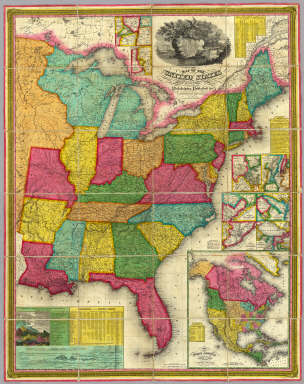
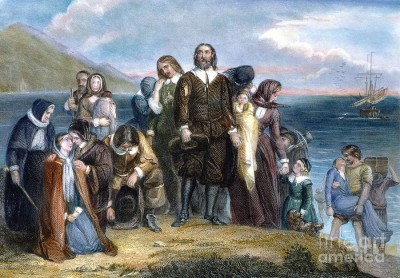
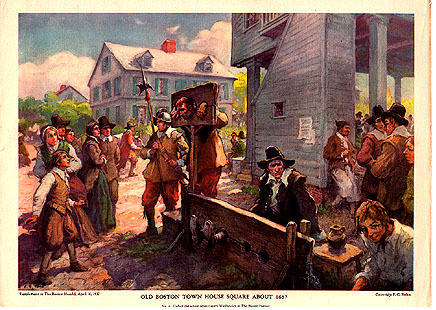

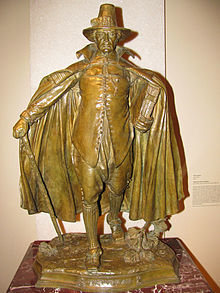
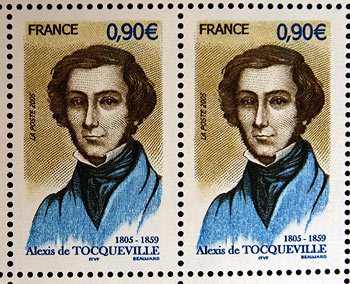
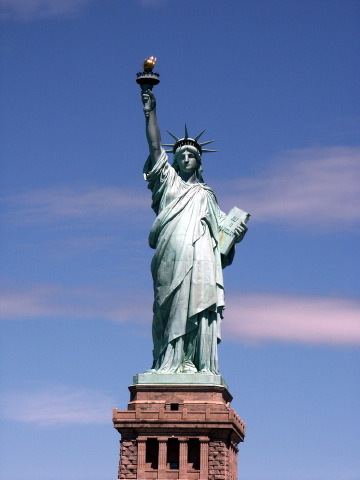
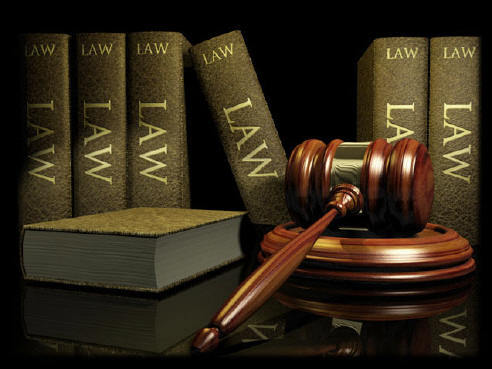
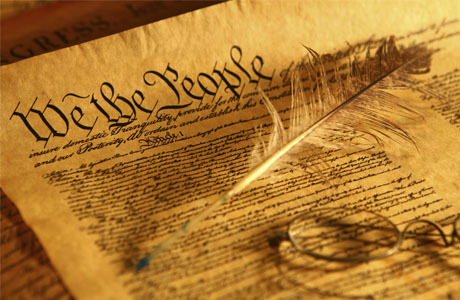


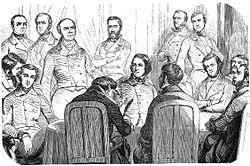






Synopsis:
Alexis de Tocqueville (1805-59) came to America in 1831 to see what a great republic was like. What struck him most was the country's equality of conditions, its democracy. The book he wrote on his return to France, Democracy in America, is both the best ever written on democracy and the best ever written on America. It remains the most often quoted book about the United States, not only because it has something to interest and please everyone, but also because it has something to teach everyone. When it was published in 2000, Harvey Mansfield and Delba Winthrop's new translation of Democracy in America—only the third since the original two-volume work was published in 1835 and 1840—was lauded in all quarters as the finest and most definitive edition of Tocqueville's classic thus far. Mansfield and Winthrop have restored the nuances of Tocqueville's language, with the expressed goal "to convey Tocqueville's thought as he held it rather than to restate it in comparable terms of today." The result is a translation with minimal interpretation, but with impeccable annotations of unfamiliar references and a masterful introduction placing the work and its author in the broader contexts of political philosophy and statesmanship.
About the Author
Alexis-Charles-Henri Clérel de Tocqueville (French: [alɛksi ʃaʁl ɑ̃ʁi kleʁɛl də tɔkvil]; 29 July 1805 – 16 April 1859) was a French political thinker and historian best known for his works Democracy in America (appearing in two volumes: 1835 and 1840) and The Old Regime and the Revolution (1856). In both of these, he analyzed the improved living standards and social conditions of individuals, as well as their relationship to the market and state in Western societies. Democracy in America was published after Tocqueville's travels in the United States, and is today considered an early work of sociology and political science.
Tocqueville was active in French politics, first under the July Monarchy (1830–48) and then during the Second Republic (1849–51) which succeeded the February 1848 Revolution. He retired from political life after Louis Napoléon Bonaparte's 2 December 1851 coup, and thereafter began work on The Old Regime and the Revolution.
He argued that the importance of the French Revolution was to continue the process of modernizing and centralizing the French state which had begun under King Louis XIV. The failure of the Revolution came from the inexperience of the deputies who were too wedded to abstract Enlightenment ideals. Tocqueville was a classical liberal who advocated parliamentary government, but was skeptical of the extremes of democracy.
(Source: Wikipedia)